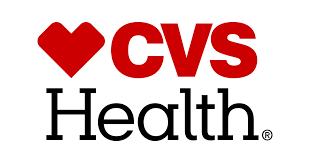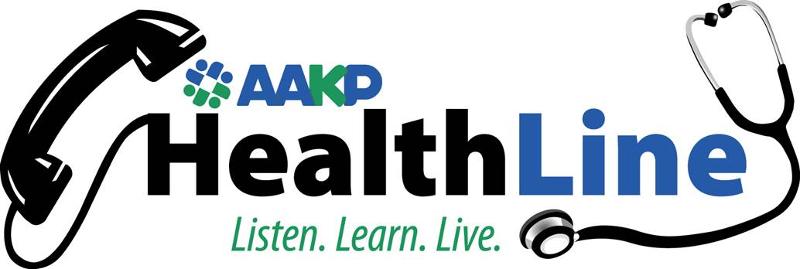|
|
|
|
 |
|
AT HOME WITH AAKP - AUGUST 2018
|
|
|
All Patients Should Have the Opportunity for Home Dialysis
Few chronic diseases require the patient commitment and lifestyle alterations that end stage renal disease does. Patients on dialysis have significant dietary restrictions and require a multitude of medications. In-center hemodialysis (HD) schedules are inflexible and require time commitments in excess of 12 hours per week. The inflexibility of in-center HD clearly affects the ability of patients to care for sick children and spouses, work, go to school, and greatly limits their ability to travel.
Chronic kidney disease requiring dialysis not only impacts patient morbidity and mortality but also overall satisfaction with care and quality of life. With this in mind, we need to more closely examine opportunities that may improve our dialysis patients' quality of life. Home dialysis is one such opportunity.
Click the button below to learn more.
|
|
|
| Subscribe to the printed version of aakpRENALIFE magazine for just $12/yr. Click the image to purchase a subscription online today.
|
|
|
|
|
|
CVS Health reveals more details about plans for CKD care, home dialysis
 CVS Health Corporation recently announced a new initiative focused on early identification of chronic kidney disease and the expansion of home dialysis to optimize care for patients. The company will focus on early identification and patient education, followed by the development of a comprehensive home program for hemodialysis and peritoneal dialysis. CVS Health will initiate a clinical trial to demonstrate a new home hemodialysis device in support of a planned FDA submission to obtain market clearance. The device has been designed to make home hemodialysis safe and simple, company officials said. Nephrology News & Issues asked Bruce Culleton, MD, vice president and chief medical officer of CVS Specialty, about the development of the chronic kidney disease (CKD) care approach and the plans for new home dialysis machines. CVS Health Corporation recently announced a new initiative focused on early identification of chronic kidney disease and the expansion of home dialysis to optimize care for patients. The company will focus on early identification and patient education, followed by the development of a comprehensive home program for hemodialysis and peritoneal dialysis. CVS Health will initiate a clinical trial to demonstrate a new home hemodialysis device in support of a planned FDA submission to obtain market clearance. The device has been designed to make home hemodialysis safe and simple, company officials said. Nephrology News & Issues asked Bruce Culleton, MD, vice president and chief medical officer of CVS Specialty, about the development of the chronic kidney disease (CKD) care approach and the plans for new home dialysis machines.
Click the button below to read the interview.
|
AAKP Healthline Webinar: Prepping and Staying Safe During Emergencies 
Are you prepared for the next natural disaster or emergency? In this webinar, you will learn about the importance of having a plan and being prepared from AAKP's Medical Advisory Board Chair, Dr. Stephen Fadem. Beverly Whittet, RN, CDN, CPHQ discusses the Kidney Community Emergency Response (KCER) Coalition and what resources are available to patients. Hear from dialysis patient Melissa Tuff, who chose to stay in Florida during Hurricane Irma evacuations in Fall 2017. After this webinar, you will be equipped with knowledge on how to be ready for any emergency that comes your way.
When: Wednesday, September 5, 2018 Time: 1 p.m. - 2 p.m. ET
Register for this free webinar by clicking the button below.
|
 Home Dialyzors United Elects Nichole Jefferson President; Nichole is an AAKP Ambassador Home Dialyzors United Elects Nichole Jefferson President; Nichole is an AAKP Ambassador
Nichole Jefferson, a native of Dallas, Texas, currently resides in West Des Moines, Iowa.
When diagnosed with end-stage renal disease in 2003, not only was she unaware of what it meant, she had no idea she was at high-risk for developing kidney disease.
Though Nichole experienced both forms of dialysis (HD and PD), she preferred the convenience peritoneal dialysis offered. On June 12, 2008, she received the gift of life, a kidney transplant. Due to the many obstacles she faced following her transplant, Nichole realized that a transplant was simply another form of treatment and not a cure. This realization sparked her quest for knowledge, which later initiated her enthusiasm for advocacy.
Click the button below to read more about Nichole.
|
 Phosphate Binders Lower Infection-Related Death Risk in HD Phosphate Binders Lower Infection-Related Death Risk in HD
In a study, hemodialysis patients who used phosphate binders had up to a 44% decreased risk of dying from infection than those who did not use the drugs.
Phosphate binder use by patients on hemodialysis (HD) is associated with a lower risk of infection-related and all-cause mortality, new findings suggest.
In a paper published in Scientific Reports (2018;8:11387), Shunsuke Yamada, MD, PhD, of Kyushu University in Fukuoka, Japan, and colleagues reported on a study of 2926 HD patients showing that those who took phosphate binders, compared with those who did not, had a significant 37% decreased risk of infection-related death and 25% decreased risk of all-cause mortality in multivariable-adjusted models.
Click the button below to read more.
|
|
For the latest AAKP news, visit our social sites & blog:
Click on Update Profile below to change your AAKP newsletter preferences or email us at [email protected].
AAKP newsletters are for informational purposes and share some of the latest news in popular media and within the kidney community. The content included is not necessarily the opinion of the Association. |
|
|
|